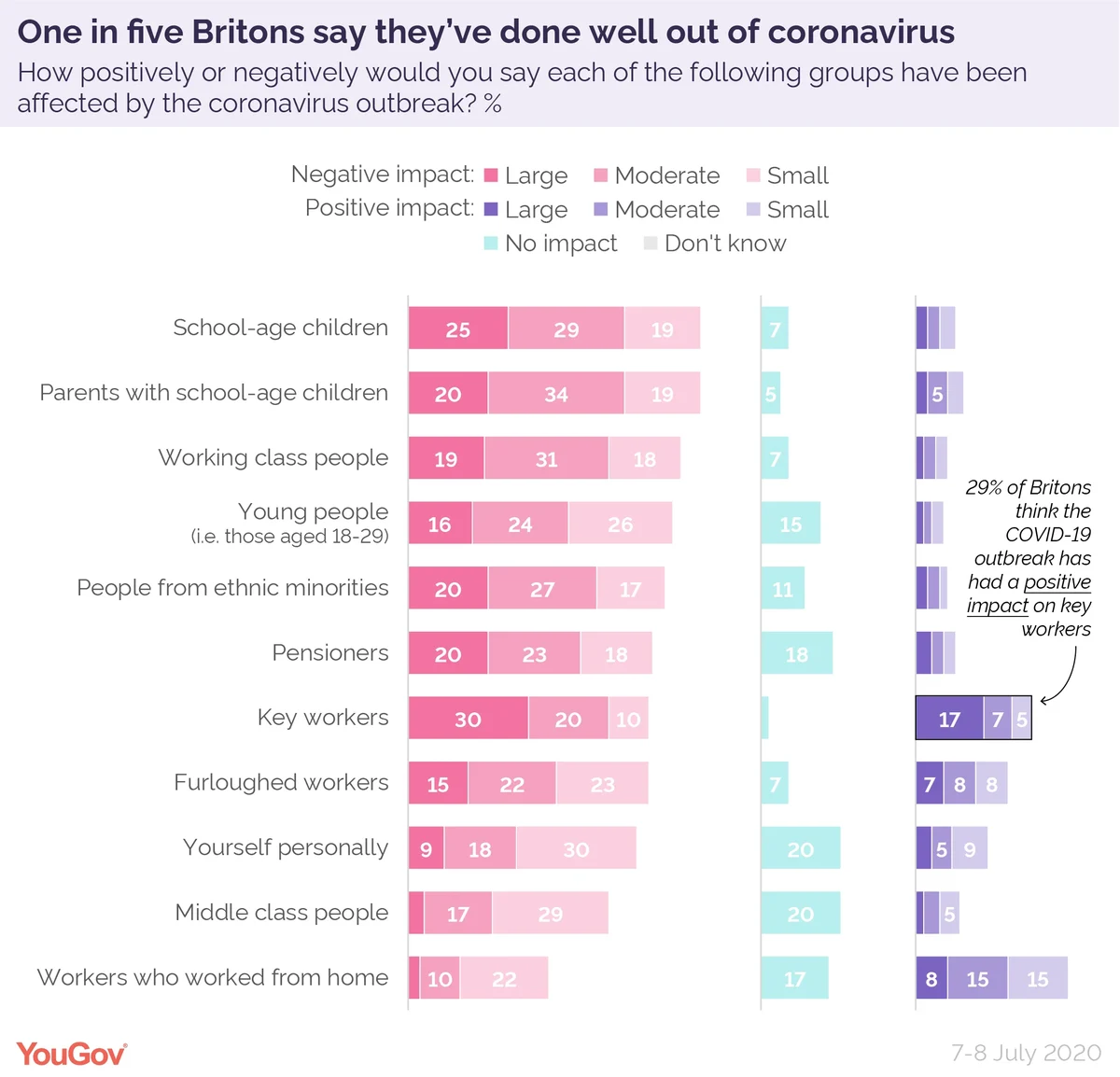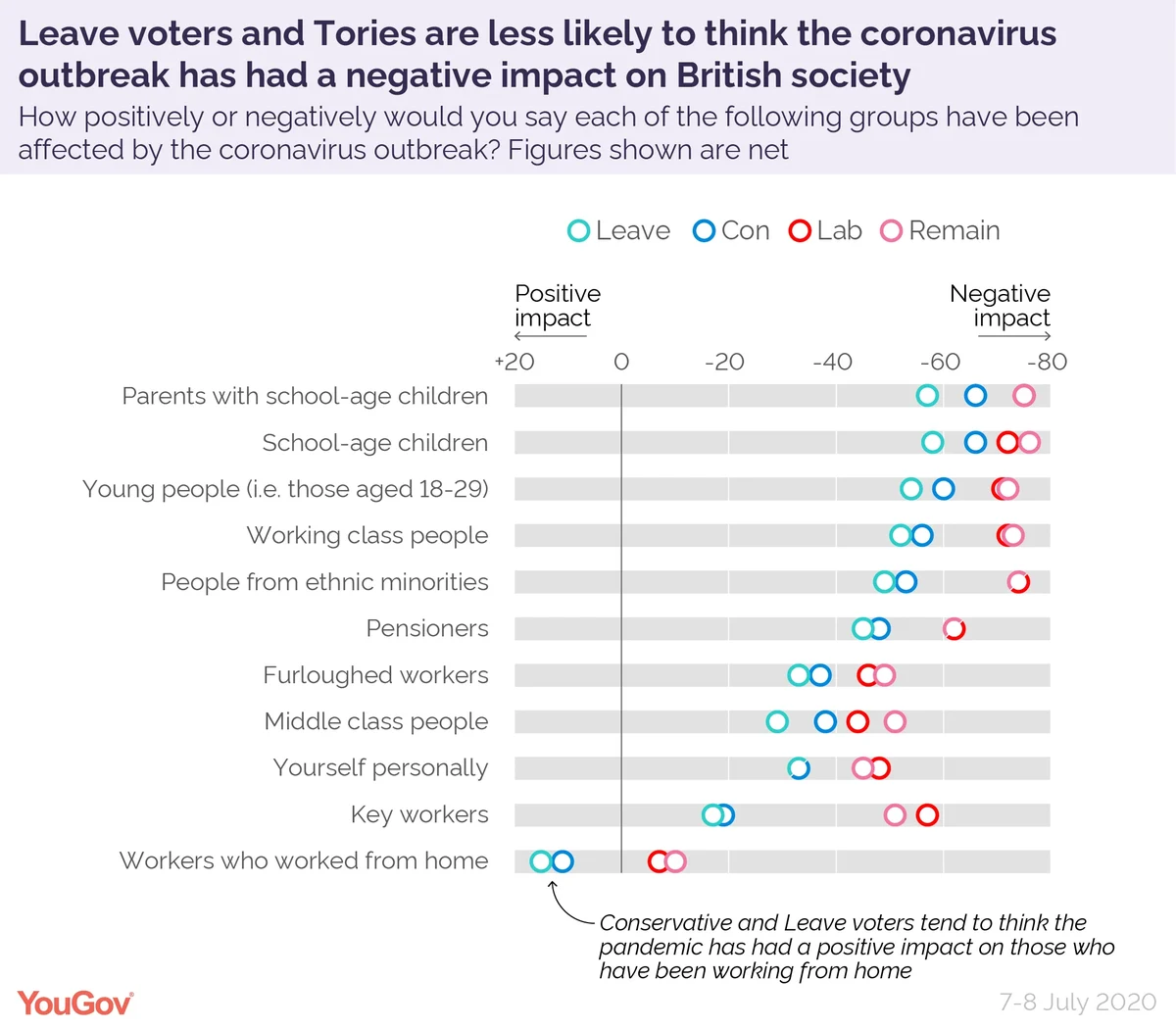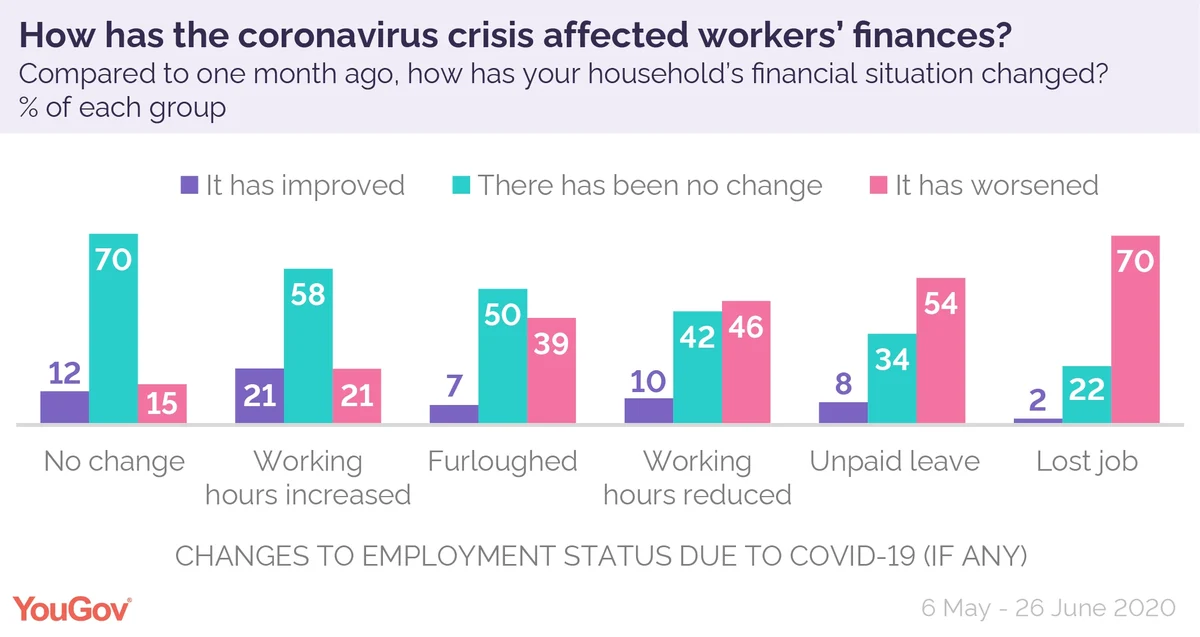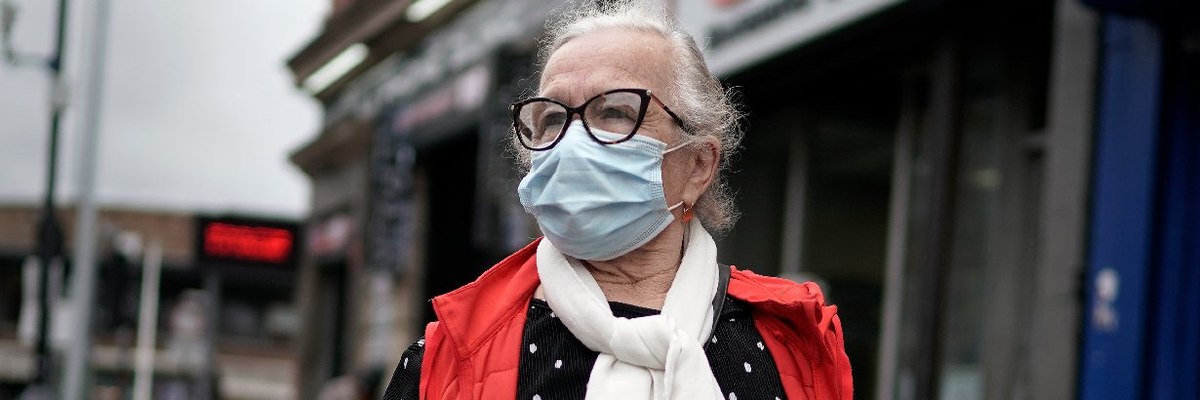Three in ten also seem to think the outbreak has benefitted key workers
With life in Britain slowly returning to normal now seems like a good time to ask Britons to take stock and assess how badly they think society has been affected by the coronavirus ordeal.
While a majority of Britons (57%) feel negatively impacted by the outbreak, staggeringly close to one in five Britons (18%) say that in spite of the stockpiling, lockdown and looming economic crisis, the pandemic has had a positive effect on them.
This figure is broadly consistent across social groups, although there is a slight gender divide (21% of men vs 16% of women) and age gap (19-20% of those aged 25-64 compared to 15% of 18-24 year olds and 16% of those aged 65 and above).
A further 20% of Britons say that the coronavirus outbreak has had no impact on them.

Who do Britons think COVID-19 has hit hardest?
If we rank groups by the number saying they think coronavirus has had a large negative impact on them then key workers come top. Three in ten Britons (30%) believe those in vital occupations who have worked through the outbreak have experienced the worst impact of the crisis.
However, if we rank groups by the total number saying they think coronavirus has had a negative impact of any severity on them then key workers fall as far as seventh out of the eleven groups we asked about.
Six in ten Britons (60%) think key workers will have had a negative experience of the pandemic, compared to the 73% who say the same of school-age children and parents of school-age children, who top the list.
In fact, three in ten Britons (29%) actively believe that coronavirus has had a positive impact on key workers, including 17% who think it has had a large positive impact. Older Britons (39%), Leave voters (35%) and Conservative voters (36%) are the most likely to thing key workers have benefitted from coronavirus.
In fact, Leave voters and Tories are consistently less likely to think that the coronavirus outbreak has had a negative impact on British society than their Remain- and Labour-voting counterparts.

What groups are Britons most likely to think are better off?
Aside from key workers and themselves, Britons are particularly likely to think that those who worked from home over the course of lockdown have benefited from the pandemic. In fact, at 38% the proportion of Britons who think this are effectively tied with the 35% who think it has had a negative impact (a further 17% think this group haven’t been affected).
Close to a quarter of Britons (23%) also consider furloughed workers to have come away with a good deal from the crisis.
How far do perceptions match up with reality?
To see how close the mark the public are we can compare attitudes against data from YouGov’s economic recovery tracker, which looked at the impact on Britons’ household finances.
It would appear that those Britons who thought workers had experienced no impact were closest to the reality – at least as far as money is concerned.
Among furloughed workers 50% say that the crisis has made no difference to their household finances. However, four in ten (39%) say their monetary situation has deteriorated over the past month, while just 7% say it has improved.

Britons who have had to work more hours as a result of the crisis – which we can use as a rough proxy for key workers – are as likely to say their household finances are better off than they were (21%) as they are to say worse off (21%). Again, a majority feel their accounts are much the same as they were a month previously 58%.
Among the large majority of workers whose employment has been unaffected by the outbreak, fully 70% say that there has been no impact on their household finances. Only 12% feel better off financially, and 15% feel worse off.









